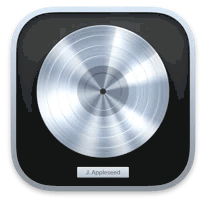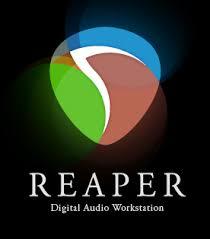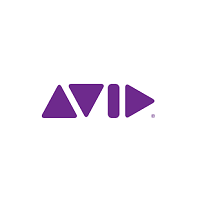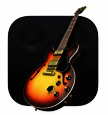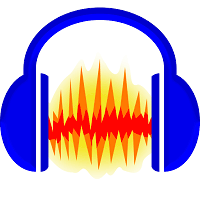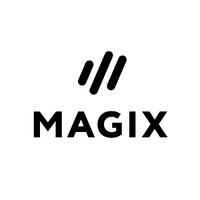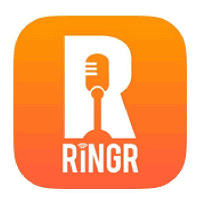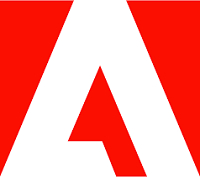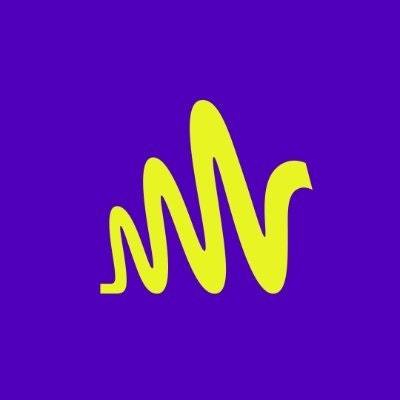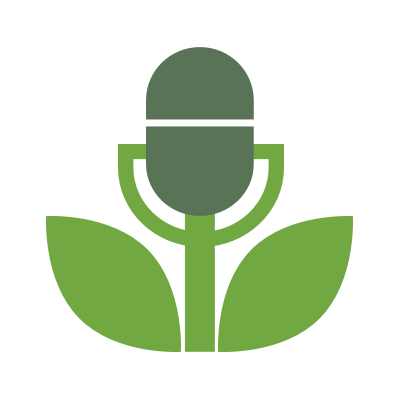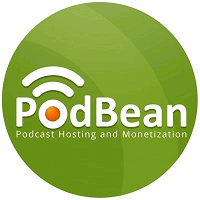Yes, most podcast recording software is compatible with a variety of devices and platforms, including desktop computers, laptops, tablets, and smartphones. This allows you to record and edit your podcast on several devices while also ensuring that all team members may access and collaborate on the recordings from anywhere. Simply ensure that you have a stable internet connection to sync your recordings across devices.
List of Best Podcast Recording Software
Hindenburg is a audio editing software designed for storytellers, journalists, and podcasters. Simplify your production process with its user-friendly interface and powerful tools. Enhance your audio content effortlessly and create exceptional result...Read More Hindenburg
Logic Pro Xs Logic Remote feature allows you to effortlessly connect your iOS device to your Mac, enabling you to control your performances and mixing with multi-touch convenience. With the ability to play software instruments directly from your iPad...Read More Logic Pro X
Discover the power of Cockos Reaper is a digital audio production software that offers a complete suite of features for recording, editing, mixing, and mastering audio and MIDI tracks. With its robust collection of tools, users can unleash their arti...Read More Cockos Reaper
Avid Pro Tools is a software for music creators and audio professionals. Connect with a dynamic community of like-minded individuals through Avid Connection and unlock endless creative opportunities within the Pro Tools application. Elevate your musi...Read More Avid Pro Tools
Studio One is a music production software that combines the best of traditional studio recording and modern beat-making techniques. With its user-friendly interface, anyone can easily turn their musical ideas into professional tracks. This powerful t...Read More Studio One
GarageBand is a music production software exclusively designed for MacBook users. With an expansive sound library featuring a wide range of instruments, vocals, guitar samples, and a diverse selection of session drummers and percussionists, GarageBan...Read More GarageBand
Audacity is a multi-platform audio editor and recorder designed for Windows, Mac, and Linux. It is a collaborative effort of volunteers, and offers user-friendly tools for editing, mixing, and recording audio. Its open-source nature makes it a budget...Read More Audacity
MAGIX Music Maker solution for effortlessly capturing your musical ideas. This versatile software allows you to connect your microphone, USB keyboard, drum pads, or guitar and start creating music in a snap. With Music Maker, you can easily sing, rap...Read More MAGIX Music Maker
Restream is a streaming platform that is transforming the live content distribution landscape. Leveraging cutting-edge technology, Restream makes it simple for users to seamlessly livestream to multiple platforms simultaneously, amplifying their reac...Read More Restream
Ringr solution for seamless remote conversations. Our innovative software, available on mobile and desktop, allows you to feel like youre in the same room with unparalleled audio clarity. Try Ringr Premium free for 7 days and effortlessly connect, re...Read More Ringr
Adobe PodCast is a audio editing solution designed specifically for podcasters. This intuitive tool offers powerful noise reduction features and seamless integration with Adobe Creative Cloud for a streamlined production process. Elevate the quality...Read More Adobe PodCast
Riverside solution for all your content creation needs. Our all-in-one platform offers seamless recording, streaming, and editing capabilities. With advanced AI technology, even complex tasks become easy, allowing you to produce top-notch content eff...Read More Riverside
Anchor by Spotify is a Podcast Software designed for SMEs, startups, agencies, and enterprises. This all-in-one solution offers a user-friendly Dashboard, seamless API integration, effortless Audio Recording, dependable Hosting services, and hassle-f...Read More Anchor by Spotify
Experience seamless content creation with Zencastr solution for podcasters, content creators, and interviewers. With advanced recording capabilities, user-friendly editing tools, and AI technology, Zencastr simplifies the distribution process and hel...Read More Zencastr
Adobe Audition - software offering a wide range of tools for creating, editing, and restoring audio. Its impressive features include multitrack support, visual displays for waveforms and spectral analysis, and user-friendly sound design options. Idea...Read More Adobe Audition
Buzzsprout, the go-to podcast hosting platform for over 120,000 podcasters. With its user-friendly interface, you can easily start, market, and generate revenue from your show. Benefit from detailed analytics, customizable websites, and top-notch sou...Read More Buzzsprout
Podbean is a podcasting platform that simplifies the podcasting journey for creators. Its user-friendly tools, detailed insights, and smooth integration with popular third-party apps help maximize audience growth and revenue potential. Whether youre...Read More Podbean
SquadCast.fm solution for remote recording for podcasters and content creators. Experience superior audio quality, easy team collaboration, and seamless integration for professional-grade recordings. Say goodbye to technical issues and hello to an in...Read More SquadCast.fm
WavePad is a audio editing software that revolutionizes the industry. Take charge of your audio recordings and flawlessly enhance them with our dynamic features. With compatibility for various formats and an impressive range of professional effects,...Read More WavePad
Podcastle is a audio production software for podcasters and content creators. With its user-friendly interface and advanced AI features, Podcastle streamlines the recording and editing process, ensuring high-quality results for beginners and professi...Read More Podcastle
Learn More About Podcast Recording Software
- What Is Podcast Recording Software?
- What Are The Recent Trends In Podcast Recording Software?
- Benefits Of Using Podcast Recording Software
- Important Factors To Consider While Purchasing Podcast Recording Software?
- What Are The Key Features To Look For In Podcast Recording Software?
- Why Do Businesses Need Podcast Recording Software?
- How Much Time Is Required To Implement Podcast Recording Software?
- What Is The Level Of Customization Available In Podcast Recording Software?
- Which Industries Can Benefit The Most From Podcast Recording Software?
- Conclusion
What Is Podcast Recording Software?
Podcast recording software is an essential tool for producing high-quality, professional-sounding podcasts. It is a digital program that lets users to record, edit, and create audio content for podcasts. Whether you're a newbie or an experienced podcaster, having the correct tools is vital for creating engaging and fascinating material for your listeners.
Podcast recording software is essentially a digital audio workstation (DAW) that allows users to record audio from a variety of sources, including a microphone, computer, or external recording device. It has an easy-to-use interface with tools and capabilities that enable seamless audio recording and editing. These features include the ability to mix and master, as well as audio effects and noise reduction.
One of the primary benefits of using podcast recording software is the ability to record numerous recordings at once. This improves the organizing and handling of audio files, making the editing process more effective. It also provides customization options, letting users to change settings like volume levels, EQ, and effects to create a more polished end output.
Aside from recording, podcasting software includes post-production features to improve the overall quality of audio. These include noise reduction, equalization, compression, and other advanced audio editing options. These technologies are essential for eliminating undesirable background noise, improving vocal clarity, and producing a professional broadcast-quality podcast.
Furthermore, podcast recording software allows for the inclusion of additional audio sources such as music tracks, sound effects, and voiceovers. This opens us more opportunities for crafting a unique and entertaining podcast. Furthermore, some software has built-in music libraries and sound effects that can be utilized for free, allowing users to avoid purchasing extra audio assets.
What Are The Recent Trends In Podcast Recording Software?
In recent years, the podcast industry has grown significantly, with an increasing number of individuals and organizations using podcasting to create and promote content. As a result, the need for high-quality podcast recording software has grown dramatically. To keep up with the changing needs of podcasters, software companies are always attempting to extend and improve their offerings. As you traverse the world of podcast recording software, you must stay up to date on industry trends and improvements.
Here are some of the latest trends in podcast recording software that you should be aware of.
1. Cloud-Based Recording: As remote work and virtual collaboration become more prevalent, cloud-based recording solutions have grown in popularity. This enables podcasters to record and edit their shows from anywhere with an internet connection, making it easier to collaborate with guests or co-hosts in different locations.
2. Multi-Track Editing: To produce a professional-sounding podcast, precision and flexibility in editing are essential. Multi-track editing is a tool that allows users to work on numerous audio files at the same time, making it easier to mix and adjust podcast features like music, sound effects, and voiceovers.
3. Editing On Mobile Devices: As mobile devices become more popular for content creation, several podcast recording software companies now provide mobile apps that allow users to record and edit podcasts while on the go. This provides podcasters with greater ease and flexibility because they may not always have access to a computer or laptop.
4. AI-Assisted Editing: Some software companies are incorporating AI-assisted editing features into their podcasts. This entails employing algorithms to automatically clean up audio, minimize background noise, and even recommend edits for a more natural flow of discussion.
5. Integration With Third-Party Programs: Aside from all-in-one recording and editing software, there are programs that focus on certain areas of podcast production, such as audio quality, transcription, or publishing. As a result, podcast recording software now integrates with various third-party solutions, giving consumers a more streamlined and effective process.
By staying up to date on the latest trends in podcast recording software, you can guarantee that you select a product that is current and prepared to fulfill your podcasting requirements and ambitions. Whether you are a newbie or an experienced podcaster, evaluating these improvements can help you make an informed decision when choosing the finest software for your podcast.
Benefits Of Using Podcast Recording Software
Podcast recording software has become an indispensable tool for content creators and podcasters, providing numerous perks that improve the podcasting experience. Whether you're a newbie or an experienced expert, investing in effective podcast recording software can significantly increase the quality of your podcast episodes.
Here are the main advantages of using podcast recording software that you should consider.
1. Professional Sound Quality: Podcast recording software includes advanced features and tools to assist you produce high-quality audio. With the option to change sound levels such as loudness, equalization, and noise reduction, your podcast's audio will be crisp, clear, and professional. This not only improves the listening experience for your audience, but it also distinguishes your podcast in terms of audio quality.
2. Simple Editing: Most podcast recording software has built-in editing facilities or the ability to export your audio to a different editing software. This allows you to easily clip, trim, and edit your audio to perfection. You may quickly erase any ums, ahs, or faults from your podcast, as well as add transitions or sound effects, to improve its overall quality. This produces a polished and seamless finished product.
3. Multiple Recording Options: Podcast recording software lets you record audio in a variety of methods, like using a microphone, a Skype call, or directly from your computer. This provides you the freedom to select the optimal recording method for your specific requirements. It also supports recording numerous guests or co-hosts, making it easier to collaborate on podcast episodes remotely.
4. Saves Time: Using podcast recording software can save you a lot of time when compared to traditional recording methods. With automatic features like auto-leveling and noise reduction, you won't have to spend hours manually adjusting sound levels or reducing background noise. This not only accelerates the recording process, but also reduces the possibility of technical problems.
5. Real-Time Monitoring: One of the primary benefits of using podcast recording software is the ability to track your audio in real time. This means that you can monitor and modify levels while recording, ensuring that your audio is of the highest quality before it's too late to make changes. This function aids in avoiding major audio issues and enables for a more seamless recording experience.
Important Factors To Consider While Purchasing Podcast Recording Software?
When it comes to recording a podcast, having the correct software is essential for producing a professional and high-quality product. With so many alternatives available, it might be difficult to select the ideal one for your requirements.
To make an informed decision, here are some crucial elements to consider while selecting podcast recording software:
1. Usability: Even beginners should find the software straightforward to use and navigate. Look for a clear and well-organized UI with easy-to-use features to make recording straightforward and efficient.
2. Audio quality: This is a critical consideration for any podcast. To maximize versatility, ensure that the software has good audio quality and supports a variety of audio formats. It should also have noise reduction tools, EQ tweaks, and other editing functions to improve sound quality.
3. Compatibility: Before purchase, make sure the software is compatible with your computer's operating system and other hardware. You don't want to end up with a program that won't work on your device.
4. Recording Options: Look for software that includes both multi-track and single-track recording capabilities. This allows you to record many individuals separately and then blend them together for a more professional outcome.
5. Editing Capabilities: Aside from recording, effective podcast software should also provide powerful editing features. This includes the ability to edit, splice, and rearrange audio clips, as well as add sound effects and background music.
6. File Management: As a podcaster, you'll have a lot of audio files, so it's critical to keep them organized. Choose software that includes a file management system that allows you to simply modify your file hierarchy.
7. Cost: Software pricing might vary greatly, so evaluate your budget. Some services provide free trials or one-time payments, whilst others demand a monthly or annual subscription. Think about your priorities and select the solution that best meets your needs and budget.
8. Tech Support And Updates: It is critical to get software from a reputed business that offers prompt support in the event of a technical problem. Also, ensure sure the program is regularly updated to repair errors and add new features.
Consider these crucial aspects when selecting podcast recording software to ensure a seamless and professional podcasting experience. Take your time researching and comparing several possibilities before making a final decision. Happy recording!
What Are The Key Features To Look For In Podcast Recording Software?
When it comes to producing a great podcast, having the correct recording software is essential. With so many options available on the market, it might be difficult to select the appropriate one.
To help you make an informed decision, below are the main things to look for in podcast recording software:
1. Audio Quality: The first and most significant factor to examine is audio quality. Your podcast should sound professional and clear in order to attract and maintain listeners. Look for software with high-quality recording and editing features including noise reduction, EQ filters, and volume leveling.
2. Multitrack Recording: Multitrack recording enables you to record various audio sources individually, giving you greater control over the final mix. This is especially beneficial for podcasts featuring interviews, numerous hosts, or background music.
3. Usability: As a podcaster, you want software that is easy to use and navigate. Look for alternatives with a straightforward interface and intuitive controls, as this can save you time and hassle while recording and editing.
4. File Management: When recording many episodes, you must have a strategy for organizing and storing audio files. The software should allow you to name and store your files in a systematic manner, making them easier to identify and retrieve.
5. Editing Tools: Editing is an important component of creating a podcast, and your recording software should have a variety of editing tools to assist you generate a polished end result. Some important capabilities to look for are the ability to cut, copy, and paste audio clips, modify volume levels, and add music and sound effects.
6. Compatibility: When selecting recording software, ensure that it is compatible with your recording equipment and file types. Make sure the software is compatible with your computer's operating system and any other hardware you may be using.
7. Price: Podcast recording software can range from free to pricey, so you should examine your budget before making a purchase. Some applications can be purchased once, while others require a subscription. Consider your needs and budget before deciding on the best solution for you.
Why Do Businesses Need Podcast Recording Software?
Businesses require podcast recording software for a number of reasons. For starters, it enables businesses to produce professional-quality recordings, which are critical for building a strong brand image and creating a dedicated audience. Businesses may guarantee that their podcasts sound professional and interesting by utilizing advanced capabilities such as noise reduction, editing tools, and multi-track recording. This, in turn, helps to establish a solid reputation and credibility in the sector.
Second, podcast recording software helps firms streamline their podcast creation process. Businesses may manage their podcast workflow efficiently using tools like as scheduling, auto-segmentation, and automated level adjustment. This not only saves expenses, but also enables businesses to produce a greater volume of podcasts, resulting in improved audience engagement and brand exposure.
In addition to these benefits, podcast recording software provides a variety of distribution choices. Businesses can easily distribute their podcasts on several platforms, such as iTunes and Spotify, to reach a larger audience. This can aid with lead generation, community development, and increasing visitors to their website or other products and services. Furthermore, podcast recording software gives useful insights and data to help organizations better understand their target audience.
Businesses may make more informed decisions regarding their podcast content by measuring analytics such as download count, listener demographics, and average listening length. Finally, podcast recording software provides enterprises with a low-cost alternative for creating and distributing podcasts.
Instead of investing in expensive recording studios or paying expert sound engineers, businesses may create high-quality podcasts using only a computer and a good microphone. This makes podcasting a feasible alternative for enterprises of all sizes, from startups to small businesses.
How Much Time Is Required To Implement Podcast Recording Software?
The time necessary to set up podcast recording software varies based on the software and the user's expertise with similar applications. The initial setup and installation process can take anywhere between 10 and 30 minutes. Beginners may need to spend more time familiarizing themselves with the software's interface and functionalities.
After installing the software, users should anticipate to spend some time customizing the settings and preferences. This can take anything from 15 minutes to an hour, depending on the user's preferences and the intricacy of the software. The amount of time spent recording a podcast will vary depending on several factors, including the podcast's duration, the number of guests, and any necessary editing or post-production work. It is advisable to set up at least 1-2 hours for recording and editing a 30-minute podcast episode.
Overall, the time necessary to adopt podcast recording software varies, but with expertise and familiarity, users can expedite the process and spend less time recording and editing their podcasts. It is also crucial to examine each software's learning curve and allow for some adjusting time while using it for the first time. Finally, the idea is to strike a balance between efficiency and providing high-quality material to your audience.
What Is The Level Of Customization Available In Podcast Recording Software?
Podcast recording software has emerged as an essential tool for both producers and businesses in the fast expanding podcasting industry. One of the most important elements to consider while searching for podcast recording software is its amount of customization.
Here's all you need to know about the degree of flexibility available in podcast recording software so you can make an informed purchasing decision.
1. Advanced Editing Tools: Because podcast recording software includes advanced editing tools, it allows for a high level of customisation. These tools provide you complete control over your recording, allowing you to trim, edit, and merge audio files according to your preferences. This level of customisation is especially beneficial for podcasters who want to produce a polished and professional-sounding finished product.
2. Audio Effects And Filters: Customization includes the use of audio effects and filters to improve sound quality and give a unique touch to your podcast. Whether it's background noise reduction, equalization, or reverb, these tools can help you develop a distinct sound style and set your podcast apart from the competition.
3. Custom Workspace: Some podcast recording software allows you to customize your workspace by arranging the layout and tools to meet your specific requirements. This level of customisation can dramatically improve your productivity, making the recording process easier and more efficient.
4. Automated Chores: Many podcast recording software has tools that automate repetitive chores like volume leveling, file naming, and exporting. This level of customisation can save you time and effort, enabling you to focus on the more creative aspects of your podcast.
5. Personalized Settings: In addition to customization inside the software, some podcast recording software lets you adjust settings based on your recording style and equipment. These options include microphone selection, audio input/output, and sound levels, giving you complete control over how your podcast sounds. It's worth noting that the level of customization available in podcast recording software varies depending on the product.
As a result, it is critical to conduct thorough research and comparisons of various software solutions to determine which one best meets your goals and tastes. With the correct podcast recording software, you can fully manage the audio quality of your podcast while also providing your audience with a unique and fascinating listening experience.
Which Industries Can Benefit The Most From Podcast Recording Software?
Podcast recording software has become a popular tool in a variety of industries, providing a simple and quick way to generate and broadcast excellent audio. Podcasting was originally connected with the entertainment industry, but it has now evolved into a powerful tool for businesses, schools, and non-profits.
Let's explore, we'll look at which sectors can profit the most from adopting podcast recording software.
1. Marketing & Advertising Podcasts: are an effective marketing tool that enables firms to reach a specific audience and develop compelling content. Businesses may quickly create high-quality audio material to market their products or services using podcast recording software. This software also includes tools like audio editing and sound effects, making it an excellent tool for developing engaging and professional marketing campaigns.
2. Education: Educators are increasingly adopting podcasts to enhance their students' learning experiences. Podcast recording software enables professors to make audio lectures and educational information that students may access at their leisure. This not only saves teachers time, but it also improves student access to learning. Podcast recording software can also be used to facilitate virtual classroom discussions, student projects, and language acquisition.
3. Event Planning: Podcasts are a wonderful method to promote events and conferences while also sharing essential takeaways and insights after the fact. Podcast recording software enables event planners to effortlessly record and broadcast interviews, panel discussions, and keynote speeches. This enables a broader reach and engagement with attendees and those who were unable to attend the event in person.
4. Human Resources: Podcast recording software might also be useful for HR departments. This software enables HR professionals to effortlessly create audio content for employee training, onboarding, and company announcements. It also adds a human touch to critical company information and can be an effective tool for remote colleagues to stay in touch.
5. Non-profit Organizations: Podcasting is an inexpensive option for NGOs to increase awareness and share their purpose with a larger audience. Nonprofits can easily use podcast recording software to create audio content that promotes their activities, offers success stories, and encourages donations. This program also provides for simple integration with social media, making it easier to interact with supporters and potential donations.
Conclusion
After researching and testing a variety of podcast recording software alternatives, it is evident that selecting the appropriate one may significantly improve the quality and efficiency of podcast production. When making a purchase, it is critical for you to evaluate your specific requirements and budget. First and foremost, ensure that the software includes all of the necessary capabilities for recording, editing, and maintaining your podcasts.
This includes the ability to record numerous recordings, apply effects and music, and make seamless transitions between pieces. Furthermore, seek for features that make it simple to share and distribute your podcast, such as built-in hosting and publishing capabilities. Next, assess the software's usability and compatibility. It should have a simple interface that is compatible with your operating system and recording devices.
Some software also includes mobile apps for recording on the fly, which is useful for busy podcasters. Budget is also a significant consideration. Many podcast recording software alternatives have free or low-cost versions, however they may be limited in capabilities or adverts. Paid options frequently include more advanced capabilities and technical support, but they may not be required for people just starting out or recording casually.
In addition to the software, search for customer reviews and ratings to get a better sense of the product's user experience and overall happiness. Also, consider reaching out to other podcasters or joining online communities to acquire recommendations and insights from those who have used the program. Overall, the key to selecting the best podcast recording software is to carefully analyze your requirements, budget, and the features and compatibility of the available solutions. With the correct software, you can speed your podcast production and create high-quality content that will keep your audience interested.
Podcast Recording Software FAQ's
Can Podcast Recording Software Be Accessed Across Multiple Devices And Platforms?
Is Podcast Recording Software Future-Proof and Adaptable To Emerging Technologies Like AI, Blockchain Or IoT?
Podcast recording software is continually changing to accommodate new technologies such as artificial intelligence (AI), blockchain, and the Internet of Things. With the quick growth of these technologies, podcast recording software must be updated to match the changing needs of podcasters.
Most software engineers are proactive in integrating these developments, ensuring that their software is future-proof and adaptable to new technology. This assures that podcasters can continue to produce high-quality content without worrying about compatibility or functioning in the future.
Is There A Free Trial Offered To Assess Podcast Recording Software Before Committing?
Unfortunately, not every podcast recording software provides a free trial. However, many respectable suppliers allow a free trial period in which consumers can evaluate the software before committing to a subscription. This is an excellent opportunity to test out the features and user interface to determine whether they fit your requirements. Take advantage of any free trials available to help you make an informed decision before buying.
Does Podcast Recording Software Offer Data Security Features And Meet Regulatory Compliance Standards?
Yes, most podcast recording software includes data security features such as encryption and password protection to preserve the integrity of your recordings. Furthermore, many software applications are intended to meet regulatory compliance criteria, such as GDPR and CCPA, in order to preserve sensitive information and comply with data privacy rules. It is critical to investigate and select trustworthy podcast recording software that stresses data security and compliance.
Can Podcast Recording Software Integrate Seamlessly With Existing Tools And Platforms?
Yes, most podcast recording software works easily with existing tools and platforms. This enables for a more efficient process, making it easier to maintain and distribute your podcast. Popular integrations include social media sites, editing software, and podcast hosting services. Using integrated software allows you to save time and effort while still producing a professional and polished podcast. Check the podcast recording software's features and compatibility before purchase to verify it fulfills your integration requirements.


